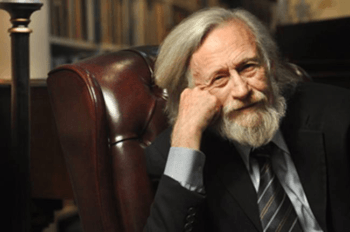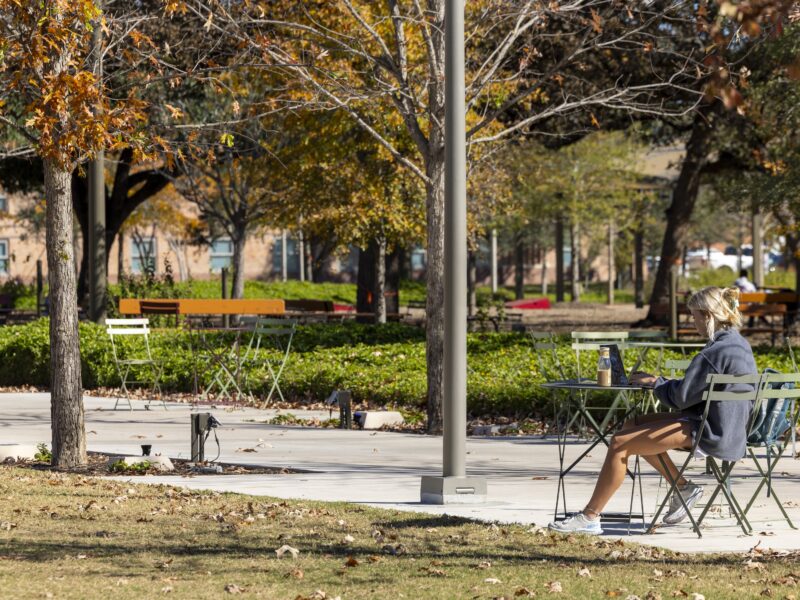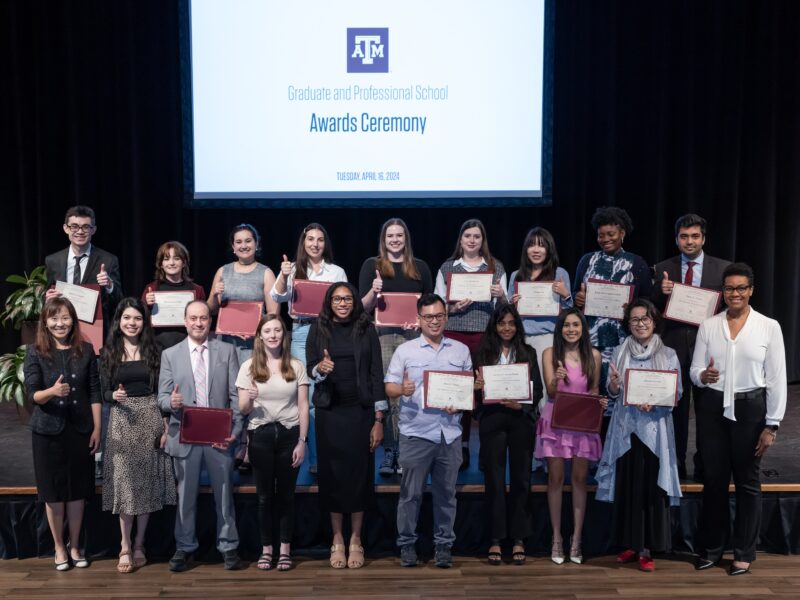John J. McDermott: A True Philosopher At Heart

John J. McDermott, distinguished professor of philosophy and humanities at Texas A&M University, draws on his pipe and gives a sharp laugh while reciting the one rule about his library: “Nothing circulates here.”
The vast library consumes two floors of his College Station home and is likely one of the most extensive and complete collections of philosophy and literature assembled in a private setting.
“When I was very young I loaned a book to someone, and I never got it back. So that was the end of it,” he says in defense.
McDermott is hard to miss. With his wild mane of gray hair and black fedora, he looks the part of the eccentric. At 74, McDermott’s face speaks of experience, its lines a road map of all the places he’s seen and people he has known. His swagger conveys the big city – subway stations, boroughs and obstructed skylines. When he talks, he sounds as New York as he was the day he ruefully left the city in 1977 bound for Texas A&M because the City University of New York, where he taught, went bankrupt.
“It was a setback that turned into a very good move,” McDermott explains. “I’m not saying that everything was hunky dory … to pick up the whole family at the age of 45 was difficult.”
Writing About William James
He came to Texas A&M University as head of the Department of Philosophy, and since then has won numerous teaching honors and awards and has inspired students to look deep for answers.
But even McDermott is breathing a sigh of relief. The Correspondence of William James, a project for which he is the general editor, was recently published. The massive undertaking, which began in 1987, has culminated with the 12th and final volume of the series.
William James is just one of the philosophers who ignited McDermott’s pilot light at an early age. There was also Camus, the existentialists and Martin Buber. But McDermott says that his love of philosophy and the humanities is directly attributable to his extended family and his New York City environment.
His father was an electrician and elevator mechanic, but work was sparse in the middle of the Depression. As a result, the family had little money. But McDermott describes his early days as rich. “Rich in stories, rich in political sensibility, rich in experiences, not fancy ones, but intense ones,” he says. “My mother was brilliant and picked up anything that anybody ever said…She was well-read.” Growing up in a tight-knit Irish-American family, he absorbed stories and experiences of the extended family. “From that I got a sense of the utter seriousness of life, its tragic side and its celebratory side.”
A Gift of Family Values
The values that emerged from this family setting were loyalty, strict work ethic and sense of obligation and a very advanced sense of helping others, he says: “Neighbors, friends, family — anybody who was in trouble.”
Early in his career, some of McDermott’s students were actually older than he was, and many are now retired. At times in his teaching career he has taught in prisons, labor colleges and early childhood centers. The bonds McDermott has forged with his students have transcended the classroom. “I still hear from hundreds of them, and usually when they are in trouble or when things go bad, but that’s okay,” he says.
At the end of the semester, McDermott invites his students to a reception at his home. “Students love it because it’s not the kind of thing they often get here,” he explains.
He treasures his students because they have caught his intellectual passion and sense of obligation. “They are independent thinkers,” he says, “because to me pedagogy is liberation. It’s not force-feeding some doctrine. I don’t have clones. One McDermott is enough.”





